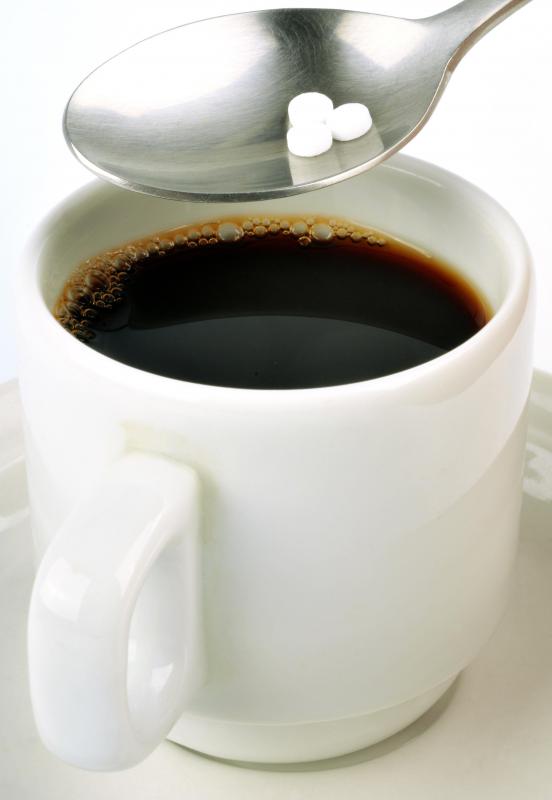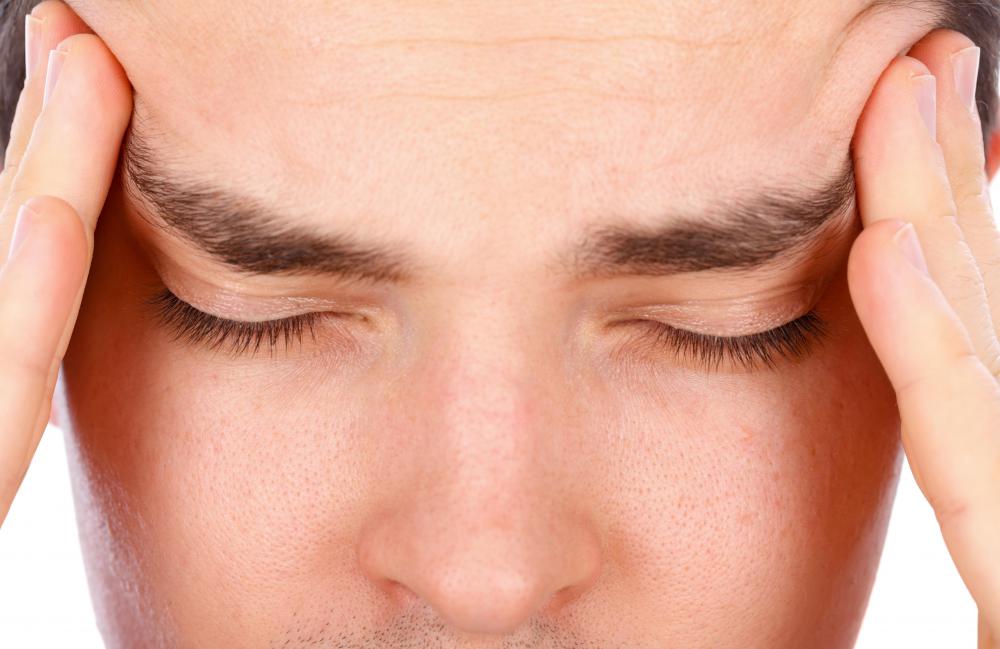At WiseGEEK, we're committed to delivering accurate, trustworthy information. Our expert-authored content is rigorously fact-checked and sourced from credible authorities. Discover how we uphold the highest standards in providing you with reliable knowledge.
What are the Potential Side Effects of Artificial Sweeteners?
Artificial sweeteners are completely synthetic food additives. Debate has raged for many decades over the safety and side effects of artificial sweeteners, but as of 2011 the US Food and Drug Administration (FDA) has listed five as safe. This quintet — saccharine, aspartame, sucralose, acesulfame K, and neotame — have all been granted the FDA’s “Generally Recognized as Safe” (GRAF) designation. Studies continue into the long-term health effects of all these products, and at least some evidence points toward the possibility of potential dangers.
Saccharine is the oldest artificial sweetener on the market, and has undergone over 30 human studies stating that it is safe for human consumption. The US National Toxicology Program (NTP) deemed in 2000 that the product was not a potential carcinogen. The side effects of artificial sweeteners containing saccharine may be minimal, but some people still feel it could pose risks. Saccharine contains sulfonamides, which could potentially lead to severe allergic reactions in those who cannot tolerate sulfa drugs. Some researchers believe saccharine might be responsible for muscle dysfunction in infants.

The FDA approved aspartame in 1981, and as of 2011 it is included as in ingredient in over 6,000 different foods. It has been approved as safe not only by the FDA, but also by the European Food Standards Authority (EFSA) and the European Scientific Committee on Food (ESCF). All of these authorities have stated that aspartame has no link to cancer, depression, or dementia, as detractors initially claimed.

The side effects of artificial sweeteners containing aspartame continue to be studied. Private researchers believe that some evidence shows a link between aspartame and headaches, depression, and cancer. Many of these studies were conducted on small groups of volunteers, but anecdotal evidence as to side effects continues to arise.
Sucralose was approved for general use in 1999 by the FDA, and is found in 4,500 products. It was discovered by scientists attempting to create a new and more effective insecticide, but the FDA claims it poses no risks to humans. Being one of the newer products, long-term studies have not been done on sucralose. The greatest fear of researchers studying the side effects of artificial sweeteners is that sucralose contains chlorine. Possible but unproven side effects are a host of gastrointestinal ailments, skin irritation, depression, and anxiety.

A virtually unknown artificial sweetener is acesulfame K. The FDA approved it in 1988, but long-term studies remain inconclusive as to possible side effects. The greatest concern regarding this sweetener is that that it contains the carcinogenic chemical methylene chloride. Heavy exposure to methylene chloride can cause ailments ranging from cancer to headaches to a generalized confusion. It is not known if brief exposure to this chemical, or ingestion of small amounts, is harmful to humans.

Neotame, approved by the FDA in 2002, is a new and improved variation of aspartame. The FDA says that it is completely safe, while detractors claim that it holds the same risks as the sweetener from which it was derived. The argument regarding side effects of artificial sweeteners remains a contentious one, a situation not expected to alter in the foreseeable future.
AS FEATURED ON:
AS FEATURED ON:














Discussion Comments
Honey can be used as a natural sweetener for many purposes, from cooking sweet foods to sweetening coffee and other drinks. Honey is also good for you in moderation and usually doesn't cause side effects.
I ate yogurt once that was sweetened with an artificial sweetener. I experienced the strange side effect of a burning sensation in my throat. I think that many artificial sweeteners are more dangerous than once suspected, and the side effects they often cause are evidence of this.
Post your comments